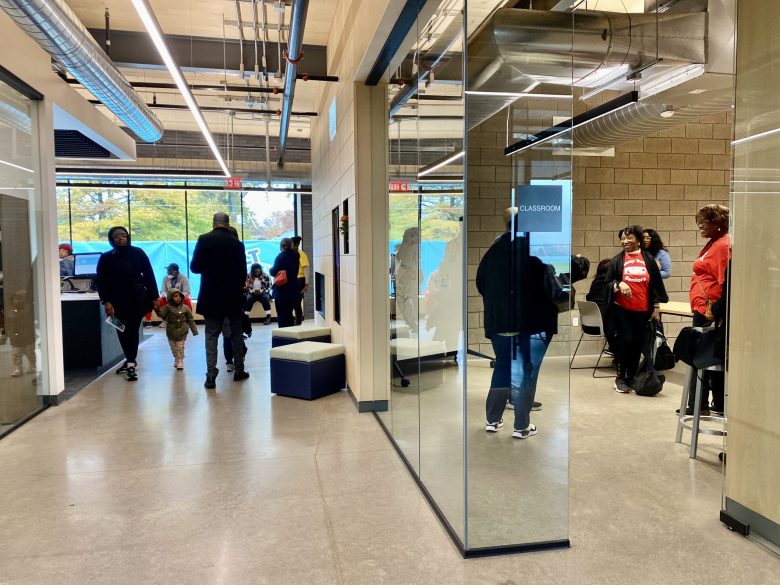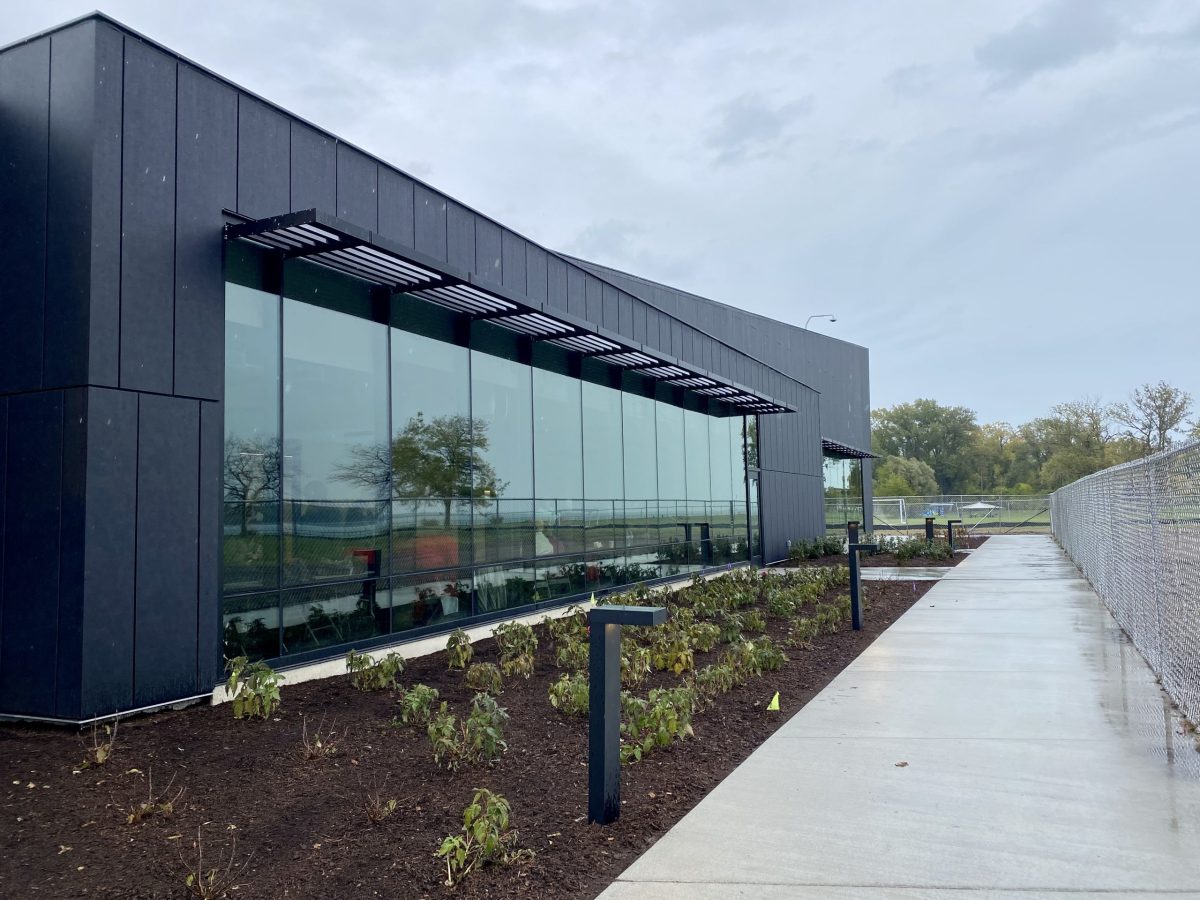This article was produced in partnership with Planet Detroit.
A new community center in Detroit’s Jefferson Chalmers neighborhood is also a key part of the city’s climate strategy.
The Community Center at A. B. Ford Park is part of the first three networks of resiliency hubs on the eastside of Detroit. In case of climate emergencies like power outages, heat waves or floods, these facilities serve the residents of the community as a central hub for resources, distribution, shelter, internet access and a place to charge devices.
The new facility includes a 70-kilowatt solar array with a backup battery and generator. This system can provide up to 72 hours of power. Ryter Cooperative Industries, a Black-owned company, was the primary solar contractor, and the development project served as a training opportunity for local contractors to learn how to install solar arrays.
The parking lot is equipped with green stormwater infrastructure and lots of native plants. The Jefferson Chalmers neighborhood was hard hit with flooding in 2021. The Lenox Center, an existing building in the park that was a pioneering resource for disabled people in the 1960s, was demolished as part of the renovation project because it was vulnerable to flooding and would have required extensive renovations.
“This is our first community center in over 15 years in District 4,” Detroit Councilmember Latisha Johnson said during her remarks at a ribbon-cutting event on Oct. 19. “This community knows how important green stormwater infrastructure is to addressing and ensuring that we don’t continue to have problems with our combined sewer overflow system.”
The new $7.9 million community center — built on higher ground — has a welcome desk, a cozy living room and library with fireplace, a multipurpose classroom, a flexible space for indoor sports, exercise classes or parties, and a large community event and meeting space with lots of big windows to view the future landscaped park and Detroit River.
“My hope is that this center will serve as a place of empowerment where individuals can access educational programs, engage in recreational activities and build lasting connections with one another,” said Mary Sheffield, president of the Detroit City Council. “Hopefully it will serve as a sanctuary of growth where the potential of our youth and the wisdom of our elders can be nurtured and celebrated.”

In the fall of 2024, with funding from the American Rescue Plan Act, the surrounding green space will be transformed into a new park for residents and visitors with playgrounds for different ages, picnic areas, outdoor fitness equipment, basketball court, pickleball court, walking paths, shelters and fishing area. There will be a meadow, new trees planted and a wetland for wildlife.
Over 200 community members from Jefferson Chalmers and District 4 were engaged during the design process for the park and the building.
Tammie Black, founder of the Manistique Community Treehouse, has led solar roof projects in Jefferson Chalmers that have helped 25 houses get solar power. And she hasn’t stopped there. She mentioned that plans are underway for a solar training house where people will learn how to implement solar.
“I am numb,” she said. “All of our dreams and everything that we wanted inside of this space is here,” Black told Planet Detroit. “We’re going to continue this effort throughout.”
William Dawkins IV grew up in Highland Park and is working at the new center as the rec leader. He hopes to be able to create programming for all of the ages who will visit the center. He spent time training at the Patton and Adams Butzel recreation centers.
At the ribbon-cutting, Dawkins pointed out the classroom area where attendees played bingo. Iconic Detroit dancer and model Fast Freddy — still going strong at 77 years old — led a hustle dance class in the large community room.
Frank Bach, who has lived a block away for 44 years, said enjoying the park taught him that “recreation is essential to physical health and to mental health.”
“This is a place people can go when the power is out. Not only when the power is out — it’s a place for people to convene just to be amongst other people,” said Jack Akinlosotu, director of the city of Detroit’s Office of Sustainability. “This project is essential to Detroit’s climate strategy.”

